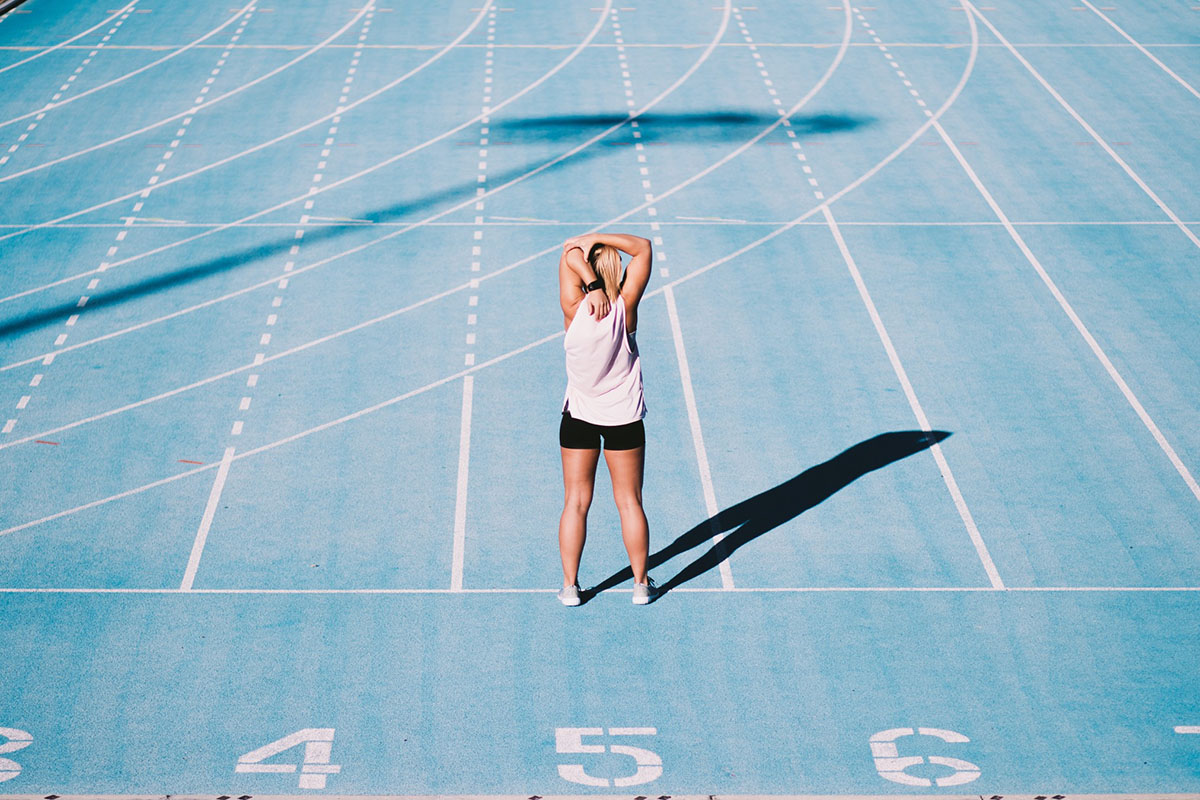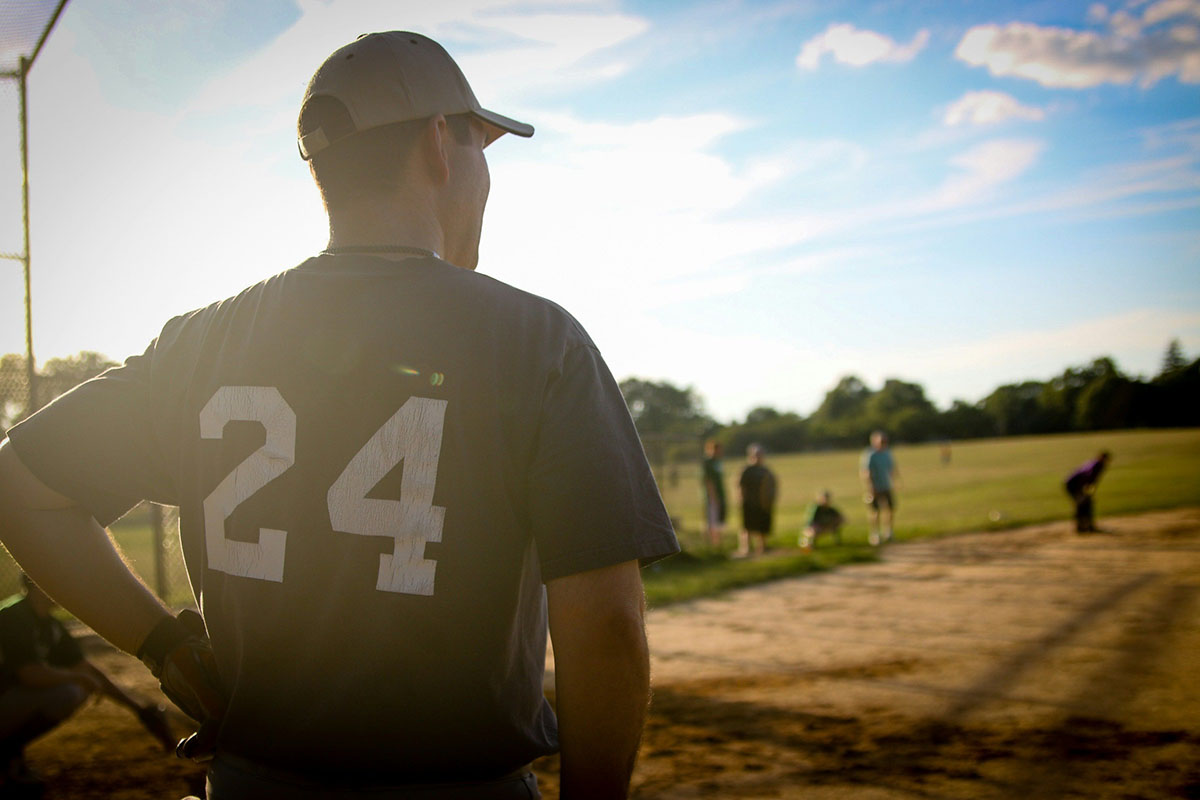When we think of sports leadership, we typically think of game strategy and motivational speeches—at…

Mindfulness Training for Athletes: What It Is and How To Get Started
Our world moves quickly. Really quickly.
Thanks to smartphones and social media, we’re always online and always connected. So while athletes have always had a unique need for shutting out distractions and focusing on the present moment, it’s even more important – and even more difficult – than it’s ever been before.
We know that a large part of success in athletic performance is mental. Regardless of how much we spend on top-of-the-line equipment or personalized training, athletes will underperform if they don’t have the mindset they need to succeed.
While things like visualization and positive affirmations have been a part of our practice for a long time, newer research is showing the value of mindfulness training, as well.
Mindfulness training for athletes might include meditation, yoga, or other calming, restorative practices as an integral part of a training routine.
Flow, the “Zone,” and Mindfulness for Athletes
If you’re an athlete, you’re no stranger to the idea of “the Zone.” When you’re in the zone, you’re laser-focused, paying attention to only what’s in front of you and on what you need to do to succeed.
Experiencing the zone isn’t unique to athletes – it can happen to anyone who’s intently focused on an activity. You might lose track of time, and the thing you’re doing might start to feel effortless. You’re confident, productive, and enjoying the flow.
“Flow” is exactly how clinical psychologists refer to this feeling – and research has shown that a flow state is even easier to get into if you’ve had plenty of mindfulness training beforehand.
What is Mindfulness
To understand mindfulness, it’s important to first understand that stress is not just something that happens inside your head. When you feel stressed, there are processes happening inside of your whole body – including an increase in cortisol levels (otherwise known as the “stress hormone”).
And it can turn into a vicious cycle: as your body begins to experience stress, you might find it difficult to focus, for example – which then causes more stress as you struggle to keep your mind on the task at hand. As your stress levels rise and you feel less and less control over your focus and mindset, your anxiety can increase, too.
All of this will impact your behavior, including your competitive performance.
Mindfulness is the idea that you can maintain a non-judgmental awareness of the present moment, including your thoughts and feelings. It maintains that you can allow your thoughts and your feelings to come and go without feeling distracted by them. Nervousness over a big match, feelings of low self-confidence, even concerns over situations totally unrelated to the competition at hand – you can simply observe as they come and go, without feeling attached or distracted.
Mindfulness can help you be aware of your train of thought, as well, and help you to identify where your thoughts originate. This can help determine if a thought is really true, if it’s applicable to the present moment, and whether it can be set aside and dealt with later.
We all have an internal dialogue, but not all of it is valuable or useful in any given situation. Mindfulness says that when you’re focused on the present moment, you’re not distracted by things that aren’t relevant to it.
Benefits of Mindfulness Training for Athletes
Every competitive situation requires focus on the present moment – but this is much easier said than done. It can be tough to keep your mind from wandering back to past performance mistakes or even apprehension over your success in the competition at hand. Maybe you’re finding yourself focused on other obligations, like childcare or your grocery list!
But as an athlete, it’s critical to keep your head in the game. If your attention is elsewhere, your performance will suffer – and your ability to avoid injury may, as well. Take the recent experience of world-class gymnast Simone Biles in the 2020 Olympics; because her focus and mindset were compromised, Biles knew she was at a much greater risk of injury if she remained in the competition.
You might be in top physical shape, but if your mental health is struggling, your performance will, too. Practicing mindfulness as an athlete can strengthen your ability to tune out both internal and external distractions – whether those are anxious thoughts or heckling opponents.
Mindfulness and Mental Toughness
Looking forward and into the past are practices that are inherently baked into sports performance. It’s necessary to both critique our past performance and anticipate the growth of our skills to anticipate future competition. We assess both of these things and adjust our behavior and our competitive strategies accordingly.
But it’s also really important to be able to turn all of that off when necessary and remain mentally tough for the long haul – which can be difficult to do, even for the most seasoned athletes. When faced with consistent stress and demand over a sustained period of time, your mental toughness can suffer.
Just like working your body and your muscles, you can only push so far before you need rest and regeneration. Engaging in mindfulness training is akin to a physical exercise routine that includes both strength training and periods of rest for our mind.
How To Start Practicing Mindfulness
A study of 182 university student athletes examined the relationship between mindfulness and physical performance. The results suggested that mindfulness could impact the time athletes spent in the flow state – in the zone – and the adoption of mental skills training ultimately improved their ability to perform.
So how can you begin a mindfulness practice? Here are a few ways to get started.
Deep Breathing and Meditation
Practicing deep breathing for a few minutes every day can help regulate your nervous system and keep you from the kind of shallow breathing that’s anything but restorative. Sit comfortably, close your eyes, and time your breath – inhale for four counts, then exhale for four counts.
It’s normal to struggle with this when you’re new to it, and can even be triggering if you tend to struggle with anxiety! Don’t let that deter you. Start small, with only a few breaths, and then work your way up to thirty seconds, a minute, two minutes…
Focus on making this practice a part of your daily routine, and you’ll find you’re able to increase gradually to several minutes at a time.
Body Scanning
A body scan is an activity where you intentionally move your focus from one part of your body to another, until you’ve “scanned” yourself from head to toe. This helps bring awareness to any tension or discomfort you might be holding and allows you to release it.
To do a body scan, lay down on your back, close your eyes, and shift your attention to each part of your body. You can begin at your feet and move up to the top of your head, or vice versa. Pause for several seconds before shifting to the next part of your body.
Alternatively, you can use an app like Calm to access guided body scan visualizations that will help you through the process.
Practice Yoga
The explosion in popularity of yoga has brought to life many new and different forms of this ancient practice. There are lots of options to choose from – but when it comes to mindfulness, you’ll want to seek out more traditional forms.
This is because traditional yoga places its emphasis on the mind-body connection, prioritizing breathwork, poses, and muscle control over simply breaking a sweat. This kind of yoga encourages us to move our awareness from the external to the internal, focusing on what we feel in our body in the present moment.
Yoga also encourages us to reserve judgment, letting thoughts and feelings enter into and leave our minds without assigning meaning to them – a core tenet of mindfulness.
A Clinical Psychologist Can Help Kickstart Your Mindfulness Practice
It’s not uncommon for athletes to struggle with consistency. This is often why athletes or their caregivers seek clinical sports psychologists to help address underlying anxiety, low self-confidence, or other issues that act as barriers to peak competitive performance.
Seeking the help of a clinical sport psychologist experienced in mindfulness training for athletes can be a valuable first step in bringing more awareness and focus to your practice – and, ultimately, making your time on and off the field a lot more fun.


